|
Word Gems
exploring self-realization, sacred personhood, and full humanity
W.T. Stead
fallacy #10:
Getting rid of the spoiled self:
the impersonal self
Return to the "Flint Recordings" main-page
Editor's note: The reader is encouraged to review the first nine fallacies before proceeding here.
|
Fallacy #10: Getting rid of the spoiled self
As one continues to progress, ever moving to still higher worlds, as one is "purified and [thereby] qualified, [that is] those who stand the tests [so to speak, and graduate with a rank of] Grade I, pass to an altogether different land, [and in this newest elevated world] each becomes impersonal – impersonal in the sense that they are no longer Jack Brown or Madge Black, they are now pure spirit people, and their former [virtue and feelings of] love, which had been a personal and individual thing, is no longer for [or directed toward] one but [is now] equally for all. All are alike to all. The purest tissue of God-Love binds one and all."
|
|
Editor's prefatory comment:
In the next worlds, as we have seen, people believe all sorts of things - much of which would feel at home at the Mad Hatter's tea party.

For example, many, at least initially, do not believe that they are dead. And some of those in shadowlands do not believe in Summerland but insist that their “rat cellar” is all there is. Some in “better neighborhoods”, too, do not believe that a place like Earth, with all its turmoil, could exist. And among the thousands of “brotherhoods” over there, each with its own religious or philosophical tenets, these espouse particular ways-and-means to live eternal life. And, not to be left out, here on Earth, as we discussed in the “levels of consciousness” writing, no matter the degree of advancement or lack thereof, each person on a certain level of development will see him- or herself as “right” and fully sanctioned to pursue the related path of living.
There seems to be a human proclivity which virtually demands that we see ourselves as morally justified, in pursuit of existential meaning. People around us, and possibly we ourselves, might do bad things, but the mind almost never says, “What I’m doing is wrong, makes no sense at all, hurts everyone, but I’ll do it anyway.” No, instead we busy ourselves constructing private mental worlds -- the great psychologists call this "creating civilization as we repress ourselves" -- worlds wherein what we do is morally justified, right, and proper; these manufactured worlds of meaning are built upon a measure of logic, twisted though it may be. In this ersatz domain of contrived and tortured meaning, we can give blessing, and logical coherency, to the most reprehensible thoughts and deeds.
man's search for meaning
Dr. Viktor Frankl, survivor of the death camps, created an entire new branch of psychology featuring humankind’s deep seated need to live a life of meaning. In his own words:
Let me explain why I have employed the term "logotherapy" as the name for my theory. Logos is a Greek word which denotes "meaning." Logotherapy, or, as it has been called by some authors, "The Third Viennese School of Psychotherapy," focuses on the meaning of human existence as well as on man's search for such a meaning. According to logotherapy, this striving to find a meaning in one's life is the primary motivational force in man. That is why I speak of a will to meaning in contrast to the pleasure principle (or, as we could also term it, the will to pleasure) on which Freudian psychoanalysis is centered, as well as in contrast to the will to power on which Adlerian psychology, using the term "striving for superiority," is focused. Man's search for meaning is the primary motivation in his life and not a "secondary rationalization" of instinctual drives. This meaning is unique and specific in that it must and can be fulfilled by him alone; only then does it achieve a significance which will satisfy his own will to meaning.
bewildered mind until it claims a unifying principle
1913 Nobel Prize winner in Literature, Bengali poet, Rabindranath Tagore (1861–1941), “On Art And Aesthetics”:
“… we have our mind; and mind seeks its own food. Mind has its necessity also. It must find out reason in things. It is faced with a multiplicity of facts, and is bewildered when it cannot claim unifying principle which simplifies the heterogeneity of things. Man’s constitution is such that he must not only find facts, but also some laws which will lighten the burden of mere number and quantity.”
This tendency to seek for meaning, properly activated, leads us forward to our godly destiny. But when the dysfunctional ego orchestrates, the outcome will fail to satisfy.
Further, none of this compulsion to seek for meaning takes a break when we move to the next worlds. And, if led by the ego, it will draw to itself new vigor in those coming realms wherein “thoughts are things”, with the mind now, more and more, unleashed to create by power of mental focus.
More problematic, when thousands and millions of dysfunctional egos congregate together -- as, indeed, they must for they are magnetically drawn to each other due to similar “vibrational” essence -- they will, even inadvertently, via subliminal “consensus reality,” jointly create whole worlds reflecting their inner spiritual poverty.

These "fiat" worlds created by the “insane 500”, as we’ve discussed, can seem very real to their inhabitants; as real as Summerland proper.
In this present article, we will explore one more of these alternate-reality worlds, perched on the wrong side of the “tree of life.” They call it “the blue island.”
|
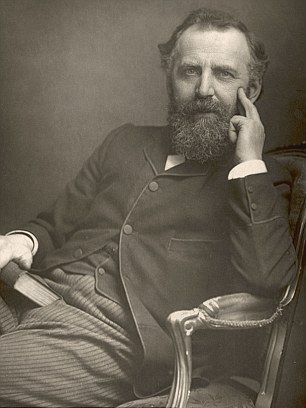
W.T. Stead (1849-1912)
Wikipedia:
William Thomas Stead (5 July 1849 – 15 April 1912) was a British newspaper editor who, as a pioneer of investigative journalism, became a controversial figure of the Victorian era. Stead published a series of hugely influential campaigns whilst editor of The Pall Mall Gazette, including his 1885 series of articles, The Maiden Tribute of Modern Babylon. These were written in support of a bill, later dubbed the "Stead Act", that raised the age of consent from 13 to 16.
Stead's "new journalism" paved the way for the modern tabloid in Great Britain. He has been described as "the most famous journalist in the British Empire". He is considered to have influenced how the press could be used to influence public opinion and government policy, and advocated "Government by Journalism". He was known for his reportage on child welfare, social legislation and reformation of England's criminal codes.
Stead died in the sinking of the RMS Titanic.
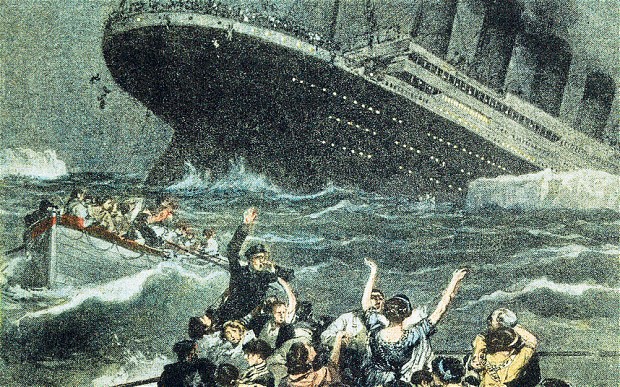
Stead, an afterlife researcher, almost immediately after the ship's foundering, began to transmit messages of the ordeal.
Dr. Keith Parsons, in a video-documentary, reviews Stead's life and achievements.

See the Documentary

Wikipedia:
Ten years after the Titanic went down, W.T. Stead's daughter Estelle published The Blue Island: Experiences of a New Arrival Beyond the Veil, which purported to be a communication with Stead via a medium. In the book, Stead describes his death at sea and discusses the nature of the afterlife.
A free copy of the book can be found online.
|
Editor's note:
“The Blue Island” is not specifically referenced in “the 500” reports. However, as the book so very frequently, and obviously, alludes to precepts held most dear to “the insane 500,” we need not hesitate to include its testimony for our review.
Stead’s commentary is valuable to us. In many ways, he lived an heroic public life, desiring to uplift society with humanistic social reforms. In this, he mirrored the charitable efforts of Elizabeth Fry; however, unlike her, he landed, over there, in a psychological-spiritual place of less than ideal circumstances. It would profit us to ask, and explore, the question, why?
|
‘live one life at a time’ and ‘I’ll worry about that later’ – failed schemes of the dysfunctional ego
Almost immediately, the book treats us to a first-hand account of the chaos that was the sinking of the Titanic. Stead asserts, concerning the hundreds floundering in the icy waters:
The whole scene was indescribably pathetic. Many, knowing what had occurred, were in agony of doubt as to their people left behind and as to their own future state. What would it hold for them? Would they be taken to see Him [Christ]? What would their sentence be?
Others were almost mental wrecks. They knew nothing, they seemed to be uninterested in everything, their minds were paralysed. A strange crew indeed, of human souls waiting their ratings in the new land.
A matter of a few minutes in time only, and here were hundreds of bodies floating in the water — dead — hundreds of souls carried through the air, alive; very much alive, some were. Many, realising their death had come, were enraged at their own powerlessness to save their valuables. They fought to save what they had on earth prized so much.
The scene on the boat at the time of striking was not pleasant, but it was as nothing to the scene among the poor souls newly thrust out of their bodies, all unwillingly. It was both heartbreaking and repellent.
agony of doubt, mental wrecks, minds paralyzed, enraged at their own powerlessness
On the “sensibility” page, I recount an incident at a business dinner-meeting. An individual sat across the table from me, to whom I inadvisedly commented concerning my afterlife research. The previously friendly expression now evaporated, replaced by an offering of tired clichés, which, she thought were original: “I’m going to live one life at a time” and “There’s time enough to worry about that later.”
But it doesn’t really work that way. Repressing one’s fears in a surfeit of disingenuous self-talk might reap for oneself a psychological harvest of terror, not unlike that experienced by the “floating bodies” in the Atlantic.
creating worlds
As discussed in the prefatory comments, mind-stuff can create world over there. But these worlds are more than solid ground and birds singing in trees, as “the blue island,” but thought-worlds, worlds designed to provide meaning to a substratum of metaparadigm.
|
like going to an amusement park, over there one can enter make-believe worlds to play ‘let’s pretend’ to simulate whatever you want
My acquaintance August Goforth is a New York licensed psychotherapist and also an accomplished psychic-medium. With his friend Timothy Gray on the other side, he has written a number of books offering information about the afterlife.
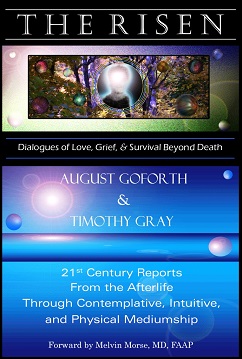
anything can be simulated
On the other side, Tim reports, the mind is so powerful, even to create whole worlds. Therein, one might simulate almost anything the mind can conjure or conceive.
turning yourself into an animal, just for fun, like a scene out of 'Sword In The Stone'

For example, he says, if one wanted to see what it would be like to live as an animal, you could do that, in simulation, in one of these make-believe worlds. It's a grand game of "let's pretend."

August: “Tim, it really does sound as if it’s all an immense and dramatic soap opera, or some kind of game.”
a grand make-believe game simulating reincarnation
Tim: “So why can’t it be? ... [and] If you want to make up a game about reincarnation and make it seem so real that it appears real, why not? … there’s no reason why a person can’t manifest [in game-simulation] yet another experience on another version of Earth that is completely like the one they left. Mind is that powerful.
Editor’s note: In this writing “the 500 tape-recorded messages from the other side” we see that there are many millions over there who simulate a kind of alternate reality. For these dysfunctional ones, reincarnation seems to be real – although none of them claims to have actually witnessed the "big goodbye." Still, there're all true believers.
Tim: "[It's like] a very large and entertaining play… These other worlds [are] no less real than [bona fide] reality; nevertheless, they are not reality, but [merely] thoughts about reality… it has an apparent feeling of reality and will respond to its manifestor’s mind as directed."

READ MORE "Risen" quotations near the bottom of the "reincarnation" page plus in the "holodeck" writing (item #6)
|
|
'Jesus has left the auditorium': negotiating, in the afterlife reports, a fake-news version, a stobe-light and puffed-up rock-star image of Jesus
On the main-page of this article, we spoke of a glitz-and-glamour plastic-banana version of Jesus promoted in many of the channeled afterlife books of 100 - 150 years ago. And, having reviewed Timothy Gray’s testimony just above, we can better understand how a gaudy and meretricious icon of Jesus might present itself over there.
If you can -- convincingly, to yourself -- meet and have dinner with Agnes and David Copperfield in the make-believe worlds in the next dimensions, then there’s little reason to doubt that a puffed-up rock-star version of Jesus, fresh from the mosh-pit, would also be available.

Recently, it became more clear to me that these ersatz images of Jesus either come to us, or are never heard of, within certain sectors over there.
For example, consider the great direct-voice mediums: Flint, French, and Sloan (all featured on the “afterlife” page). Each of these “brought through” over decades hundreds or thousands of “voices” from the other side. But, within this very large cache of other-side information, there is not one word, from any of these reports, that society over there is fashioned around worship of Jesus. They don’t know anything about this.
Or, another major source, the writings of Father Benson; generally reputed to be the most detailed of any of the next-side testimonies. Benson goes out of his way to explain that Summerland is built along spiritual lines, not religious. And though a meeting with Jesus might, at the right time, be possible, it is not standard fare over there.
Further, as I mentally review those Summerland reporters whom I consider to be most sane, most knowledgeable – Charlotte Dresser, Robert James Lees, Carlyle Petersilea, Eliza Duffey, the Wicklands, Arthur Findlay, Andrew Jackson Davis, William Aber, Dr. Peebles, Timothy Gray, The Course In Miracles, Dr. Susan B. Martinez, Prof. G. Henslow, A. Farnese, Elizabeth Sweet, and others – none of these speak of a Jesus-dominated afterlife. Also, quite telling, at least to me, is the fact that most, nearly all, of these reporters possess a certain cluster of important truths of natural law: they understand that reincarnation is a hoax, that Twin Soul love constitutes our chief happiness, that God has no mercy to offer because God was and is never offended, that the purpose of life is to discover one's "made in the image" riches, that the universe is about education not punishment, that God has no favorites and all are equal before her, that progress is eternal with all having opportunity to change and grow despite current imperfections.
I don’t think it’s an accident that this “cluster” of natural-law gems often comes as a package. This is so because these represent a certain honoring of "the true self". If one over there is constantly directing oneself to worship Jesus, then one’s own “made in the image” riches will go begging and undeveloped. And this is a formula for psychological dysfunction, existential malaise, and eventual insanity.
In principle, this same dynamic of emphasizing too much a religious authority led, generally, to society's stultification and, with its absence, the rise of progress in ancient Greece. See Prof. Robinson's lecture.
The following is channeled information via the mediumship of William W. Aber, the Psychic Research Society, as reported in “Beyond The Veil” (1902), compiled by J.H. Nixon. Testimonies were offered by numerous spirit-persons by means of full-form visible materialization.
“During the evening [one of our circle] Dr. Schellhous asked [spirit] Professor Denton this question: ‘Is Jesus Christ a personality or a myth?’ The spirit, in his best oratorical style, answered: ‘… there was one [that is, a historical figure named] Josie [or Jesus], a [psychic] medium, that was manufactured or doctored up into the modern 'historical Jesus Christ': There is no such personage as the Lord Jesus Christ recognized here by any of the higher spirits whom I have yet met; but there is here the [spirit-person named] Josie … but he is not held here to be any more of a Savior than any good man.
‘There was, before Josie, Buddha, whose followers adored him as a savior, and many millions now adore this Buddha as their savior. Now, this Buddha is a real personality in history, but the savior part of him is a myth. The fact that for thousands of years one-third of the human race on earth have held Buddha to be a savior, a god, does not make him … either savior or god. Neither does the fact that Josie [Jesus], who lived on earth four hundred or five hundred years after Buddha, and it being claimed for him, Josie, to be a savior, a god, by not more than one-fifth of the human race on earth, make of Josie the 'Lord God Almighty, The Jesus Christ or Savior’ part of Josie is a myth, just as the saviorship of Buddha is absolutely a myth, and the miraculous conception of the one is just as mythological as that of the other.’
'[Again] In all my experience I have never met a spirit that has ever seen such a personage as this Jesus Christ. And, of all reports we have ever received from the higher spheres beyond us, none has ever reported the existence of such an one.'"
Notice that this directly-materialized speaker reports that, even among “any of the higher spirits,” no one knows anything about, "none has ever reported," what many assume as fact, a rock-star god named Jesus.
An account such as this directly contradicts the many reports of a glitz-and-glamour rock-star Jesus. Someone is wrong.
It is acknowledged that there existed a historical figure named Jesus 2000 years ago. He possessed psychic-abilities, possibly issuing as “miracles”, but these gifts were not unique as other mediums today have done the same and more.
And yet, from so many of the channeled works, we do have these reports of a glitz-and-glamour rock-star Jesus effectively demanding to be worshipped. Clearly, as discussed on the “#31 main-page”, there are alternate-but-dysfunctional lines of reality unfolding in the afterlife.
Those who live by the “false self” see and live in a universe that’s much different from those who are sane. And for those who would interject, “the rock-star Jesus is the true reality,” I would just remind all of us that there are many different competing and contradictory versions of this glamour-god Jesus. This multiplicity of presentation, by itself, is another indication that a local group-consensus has manufactured an icon of said Jesus suitable to their particular liking.
|
In the “reason behind the reason” article, we spoke of the “Joker is wild” principle. The Joker card can fill any set, complete any series, and a “Joker is wild” concept – such as “Satan did it” – is regularly pulled out of a hat to suffuse a checkered theory with some semblance of logicality.
People do this all the time. And they do it, as Dr. Frankl intimated, in order to create a “story”, a narrative, which we tell ourselves, and others, concerning why what we’re doing makes sense. It’s way of manufacturing meaning.
And if the dysfunctional ego does this in the next world, it sometimes finds itself with the power to assemble a kind of “world system” which seems to answer the big questions of life. They may be answered, but are we convinced?
In the following, I’d like to provide statements by Stead, which he finds persuasive in terms of building a life-philosophy, but which seem to me as schemes of the ego, a contravention of natural law. I’ll explain what I mean.
'those of us who could understand realised that we were being taken to the place destined for all those people who pass over suddenly'
No, there is no special preliminary world for those suddenly ejected from the Earth-plane. We have numerous reports of battlefield soldiers, passing over suddenly, whose vibrational essence fitted them for Summerland, and they go directly to that land of endless sunshine. Some of the violently dispatched may sleep in a hospital for a short while, but, if one has decently good character, it's a hospital in Summerland.
As we've discussed earlier, the sorting out process upon transition, in terms of where one goes, occurs naturally as a function of essential vibrational essence. In other words, we go to where matter/spirit of the environment vibrates at a rate matching our own. No need for a warm-up because you can't go to where you don't fit in.
Stead says that you need the “blue island” for "acclimatization" prior to Summerland. No, you don’t. There’s nothing in Summerland that “mars and jars,” as they say. Jump right in, the water's fine. But you’ll get a different story in the “dark regions” as they manufacture meaning to explain why they're not in the best place.
‘There were people of all conditions, of all colours, all races and all sizes; all went about freely together, but there was a great sense of caring only for oneself, self-absorption... a necessary thing here, both for the general and individual good. There would be no progress or recovery in this land without it. As a result of this absorption, there was a general peace amongst these many people, and this peace would not have been attained without this self-centredness. No one took notice of any other. Each stood for himself, and was almost unaware of all the others.’
While a healthy sense of self-respect will always be part of the maturing spirit, “self-absorption” and “self-centeredness” goes too far into negative territory and widely misses the mark of any notion of healthy outlook.
These citizens of the "blue island" were so into themselves that they walked zombie-like with virtually no ability to see others. One cannot enter Summerland thus involuted.
zombie invasion
The reason why they were "zombies" there is because they had lived as "zombies" while on the Earth - totally self-centered, "it's all about me," unable to perceive others as fellow human beings, brothers and sisters.
This inability to see others, this diminishment of critical faculties, is an easy clue that we're dealing here with inhabitants of the spiritual-psychological "dark" regions. See hundreds of such cases documented on the "sensibility" page.
The “blue island”, despite its pleasant scenery, is nothing more than an “upscale” version of a shadowland; a “purgatorial” region where people must decide if they will become service-minded. Stead’s justification for self-absorption is merely an ego talking, attempting to sell you a narrative as to why “we’re doing well, we're just fine, even though we're in this holding area.”
These people of various races, sizes, conditions - so different from each other, yet - had one big thing in common: they were all stone-cold self-centered and materialistic, and that's why they landed where they did.
Not everyone on the Titanic entered "the blue island," only those beset by spiritual poverty; for example, the brave fellows who played their violins on deck as the frenzied mob rioted around them, would have gone, we have little doubt, straight to Summerland; no detour to the "blue island" required, no "acclimatization" needed.
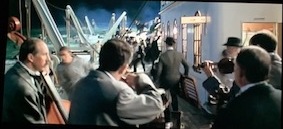
'I want you first to realise that by the change of death you do not become part of the Godhead immediately.'
“Godhead” is one of those religious words that has no basis in reality. There is no Godhead. By Godhead some mean the Trinity or becoming equal with God, or some aspect of bureaucratic-anthropomorphic vision of God. None of this is true. The most we can say is that God is Spirit, the Great Spirit, Universal Consciousness and Intelligence, the ground of all being.
When the “insane 500” speak of becoming one with God, they mean jumping off the existential cliff into Nirvana nothingness, ridding oneself of self, like a drop of water losing identity in the ocean. This will never happen.
This reference to "immediately," to a time-frame, is a favorite ploy by "the 500" in terms of hiding, taking refuge, in a remote, unverifiable future; in other words, because there is no evidence for their propositions, they are wont to say, "It'll happen in a bazillion years, just you wait and see."
There is no future “becoming part of the Godhead.” This moment, right now, one is as much a part of God, via one’s inner soul-energies, as one will enjoy even a million years from now. We already have it, but “the 500” are oblivious to “the inner life.”
‘remember that I do know considerably more than you do, because I am in more intimate touch with the Main Source of knowledge, and I have passed through an experience which is still ahead of you all’
No, this is absolutely not true, and only a dysfunctional ego would preach this. One’s degree of intimacy with God has nothing to do with one’s zip-code. So many times “the 500” will attempt to bolster their propagandas with assertions, “We’re over here, so we really know.” They will know the colors of the flowers in a way that we cannot, but in terms of understanding natural law, how the universe really works, and anything truly important, we gain these insights by direct inspiration from God via one’s “made in the image” soul-energies. Geography cannot help us with this.
And this is why, as we’ve seen quotations from the ancient Guides, those on the other side can actually learn about God from ones on planet Earth, if the terra-citizen is plugged into the best Source of knowledge. God has no favorite kids, and S/he will teach whoever is willing to be taught, no matter their current address. It shall always be so.
|
'we're over here and we really know'
Over the years I’ve read, probably, close to 200 channeled books from the last 150 years. Most of these find origin with the “insane 500”. There are so many of these off-kilter testimonies, it’s hard to find one from a sound mind. The wayward reports unfold as if they’re reading from the same script. Above all, they want to hint at how smart they are, that “geography is spirituality,” that they live high on Mount Olympus.
And, as I say, there are so many of these checkered accounts, but there’s one I might draw attention to as particularly offensive. Before I do, let's remind ourselves that, in Summerland, one finds alternative persuasions.
We spoke of this on the “afterlife #31” main-page. Leading this better view are people like Father Benson, the ancient Chinese man, and Brother John of Glastonbury. I just used the term “offensive” and John described these “know it alls” as “appalling.” It takes one’s breath away to survey what “the insane” teachers are promoting.
Let’s again review John’s evaluation:
|
Brother John of Glastonbury: We in the spirit-world are often appalled at how so-called 'servants of God' become proud and puffed up, thinking themselves to be so important and better than others.
Brother John of Glastonbury (1393-1464 CE), one of the "sane 500," a former monk during his Earth-life, in effect, speaks with T.S. Eloit on the problem of "servants" ruining themselves in an orgy of hubristic pride:
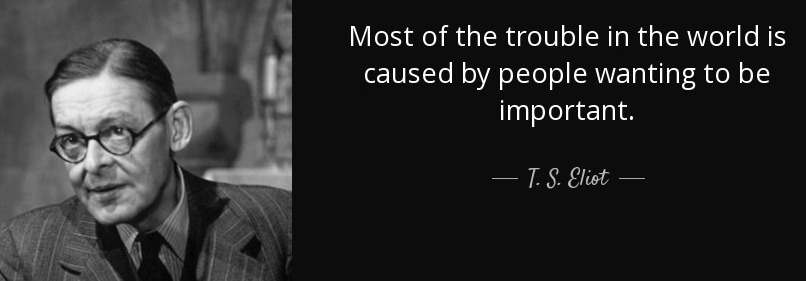
Here is a rough transcript of Brother John's teaching, recorded 3.10.1961:
"We in spirit are often appalled by how those with whom we work become proud, and now see themselves as better and above the common man or woman; how they in themselves feel so important. The ego builds a barrier making it difficult for us to work with a 'servant,' and the message is distorted or falls to the ground because of the pride. I want to warn them of the dangers that lie within themselves when other people praise them and say how wonderful they are, and they come to believe it, causing them to become materially-minded and unbalanced. Some mediums, in boastful pride, give the impression that they know all about the world of spirit, that they have all the answers, but this is not true, never true, as there is so much that cannot be revealed during your time on Earth."
|
The offensive account, singling itself as especially worthy of opprobrium, is this book:

Psychic Judy Laddon strikes me as a fine person but the entity on the other side whom she channels brings new life to the word “appalling.” If you look it up in the dictionary, you’ll see this “teacher’s” face there.
The lesson plan offered contains all the stellar bankrupt ideas (but unraveled on a thousand Word Gems pages): (1) we’re better than you, we really know because we’re over here; (2) you need to climb the ladder of ontology to the highest rungs because “geography is spirituality”; (3) we all look forward to reincarnation, and (4) we’ve already had umpteen past lives, that's why we're so advanced; (5) in the future we’ll all be genderless, meaning, there is no such thing as authentic, lasting romantic love; further, (6) the soul has no innate gender, we weren't fundamentally created female and male, as these are like overcoats to be switched around at one’s fancy; (7) experience in the world is what touches the soul and matures it, that is, it wasn’t made perfect; (8) all of which suggests, there is no whole-and-true god-spark within you, awaiting one’s realization; you're not really the sons and daughters of God.
And, again, this becomes an “appalling” and “offensive” lesson plan – disgusting in its arrogance and chutzpah -- because there’s not a glimmer of evidence to support any of these "great truths" as they're constructed only with the glassy-eyed hubris of self-appointed “teachers.”
We are headed for Summerland, and we will meet these people, just as John deals with them. They will try to convince you, recruit you, for their particular cultish version of reality. And if we’ve not yet discovered the “inner riches” of the “true self” we become prey for these mountebanks, selling their quack remedies for what ails you.
|
more than drinking the koolaid
The long reach of cultism encompasses much more than crackpot churches. The root idea of cult offers the sense of "cut." This core concept of "cut" leads us to images of refinement and refashioning and, by extension, development, control, pattern, order, and system.
Cultism as systemization finds a ready home in religion and philosophy which seek to regulate and redistill the patterning and ordering of ideas. However, in a larger sense, the spirit of cultism extends to every facet of society. We find it scheming and sedulously at work in politics, academia, family, corporations, entertainment, science, artistry – anywhere power might be gained by capturing credulous and fear-based minds.
See the “cultism” page for a full discussion.

|
Editor’s note: See the discussion at the conclusion, the bottom of the page, of the “clear thinking” writing. We agree with F. Scott Fitzgerald that the mark of a first-rate intelligence, of necessity, is that of living with uncertainty, incomplete data, in a universe filled with knowledge. It shall always be so. And those who proclaim “final answers” and “we really know” reveal more about their own childish immaturity than any purported advancement.
|
‘When you are over in this life you will not be continually associated with people who are not of interest to you. On earth you eliminate, as far as practical, the people who tire and try you - but here that can be done effectively because those feelings and instincts are entirely mutual.’
This statement is correct, as far as it goes. It is correct that we will not be ever associated with those who are not like us, those who might have certain shortcomings. However, I detect too much relish in this putting away of others. These “others,” who might be disadvantaged, are our “clients,” so to speak, as these are the ones sometimes needing a helping hand. I love the quotation from the ancient Spirit Guide who works as a missionary in the Dark Realms; notice the tone of conciliation, of reaching out, if that were possible, to wayward brothers and sisters:
There is no limit to our progress and even the longest earthly life [with its sufferings] and the longest probation of these dark spheres are but stepping-stones for man to mount to the thrones of angels. Progression is ever possible, even to the most degraded soul. This great truth we preach. And as you have been strengthened and taught, so do you feel bound by the obligations of gratitude and ties of universal brotherhood to help others [achieve the same]. Testimony of a missionary Spirit Guide; A Wanderer In Spirit Lands, A. Farnese
‘After a period of time, during which they must make specified progress in general development [and] make forward steps in their evolution. If they don't progress, they lose their [current standing and] re-qualify for it.’
The principle on display here is generally true: one has free will and it’s possible to “backslide.” However, as a practical matter, this would occur in the shadowlands, the probationary realms, and not in Summerland. Once one is mature enough to warrant entrance to Summerland, there is no continual fretting, a standing in jeopardy, “Will I be asked to leave? What if I don’t measure up?" That pretty much doesn’t happen on that higher level.
An incident comes to mind, reprinted from the Summerland page, featuring this quality of having attained a state of settled mind:
|
What would happen if you did something foolish and unwise in Summerland?
The following testimony, from a fallen soldier of World War I in Summerland, was sent to his mother via psychic-medium (from “Claude’s Book”).
Claude asks his Guide what would happen, now that's he's in Summerland, if he did something foolish or in bad taste. The Guide responds:
"You will not [do such-and-such boorish activity] - that would be foolish; and if you were foolish you would not [even] be here, as each man earns his environment by his conduct. By the working of the natural law you gravitate to the place for which you are suited; what is within you draws you automatically [to wherever you reside in the astral realms, to pleasant or unpleasant environment]."
Editor's note: I like this answer. If your own internal energies allow you into Summerland, then, not to worry, you're good to go, you're staying.
|
‘On being established here … each one is interviewed by one of the Advanced Spirit Instructors and the whole record of earth is discussed and analysed - reason, motive and result.’
No, there is no “one size fits all” kind of life review. And if you’ve been introspective during the Earth-life, there may be no specific official review at all. That of which Stead speaks, being hauled somewhat-unwillingly before a tribunal, would much more likely occur in the shadowlands where people are not that interested in becoming more spiritual or aware.
'But after that state [of life review and paying debts] is passed … then we can each one settle down to live here in freedom… Once free, we can travel at will over our own world and over yours… There is a great truth in the saying that as ye sow, so shall ye reap [but we can get past paying our debts].'
Again, the principle offered is true enough. There are, indeed, consequences for one’s misdeeds, and we are required to make amends, as much as possible. But the attitude here by which we’re informed leaves us feeling flat.
The purpose of the life-review, among those “living in the spirit,” those beginning to take on the perspective of God, is not one of, “Let’s get this over and done with so we can be free to indulge ourselves in a life of non-stop pleasure.” Well, there will be a great deal of pleasure in the offing, but this perspective of “Are we done yet, have I paid enough yet?” is how people in the dark realms think. This notion of payment recalls the question of Jesus' men, "How much do I have to forgive? - seven times?"
The maturing person wants to make amends, dearly wants to set right what went wrong during a time of one’s immaturity. Embarking upon a program of “repayment” is not characterized by “Let’s drink the bitter medicine quickly so we can have a high old time,” but, rather, this will be an inaugural event leading one into an eternal life of service toward the disadvantaged.
See, once more (above) the advice of the ancient missionary Guide: We offer our service, on a continual basis, as a natural result of having received, for oneself, that helping hand; and now, in gratitude toward Mother-Father God, we desire to share our joy with others. This is the start of a whole new way of life, even, eternal life - but these thoughts are too high for the well self-absorbed.
‘Looking back on it all since I first came to the Blue Isle, I have great satisfaction in seeing the advance I have made.’
There’s nothing wrong with feeling satisfaction for one’s progress, but “the 500” have a way of making it wrong.
As we’ve seen during our travels through the first nine items of “getting rid of the spoiled self,” they seem to be ever cognizant of their rank, position, level of authority, and so-called “advancement.” However, like the fish that doesn’t know it’s in water, the truly advanced person doesn’t continually think about “advancement” but only the joy of living and being of service.
|
the ego's search for meaning
Think of the ways people attempt to give meaning to their lives; many of these, dysfunctional:
negative self-talk, convincing oneself that failure is one's only option
repression and denial (as they say, "it's not just a river in Egypt anymore")
conjuring groundless theories
the deceptive 'games people play' (as outlined on the "clear thinking" page)
blaming others
“my parents did such-and-such to me”
“I was never lucky”
“I can’t do this-or-that”
"I'm not smart enough"
“I’m in debt because I deserved, I owed it to myself, to buy that expensive such-and-such”
“I’m a visual learner, I can’t study”
"others get all the breaks"
"It's not what you know, it's who you know"
"I can't save money, everything's too expensive"
"I couldn't start a business like that, what would people say?"
"in my family, we've never been any good at that"
These and many other speeches by the ego, this wallpapering over reality, become an attempt to manufacture meaning for one’s off-center life.
And when we cross over, the mind will find itself in receipt of augmented abilities to materialize fantasies.
Anais Nin: "We don't see things as they are, we see them as we are."
|
‘Many people … ask the question, To where is it all leading? What is to be our ultimate state? … When here you will qualify for a further state… From that, you will go to a further state, another sphere’
Well, yes, there is eternal advancement - but not the way "the insane 500" have it. Notice how they talk about trading up: "from that... a further state... another sphere." They're already dissatisfied with an imagined future accomplishment, they're already craving for "more"; they don't really know what they want except that it'll be "more."
“The 500” see the future as a staircase to advancement, and "advancement" for them primarily means "more." There is little perception of enjoying what one is or has at the moment. Instead, in their existential neediness, to fill up the bottomless pit of "emptiness," they seek for “more and more,” as the ancient Chinese man observed.
“Where is it all this leading?” – not to some glory of self-adulation, not to perceptions of advancement, because the truly advanced don’t think that way. All this is leading, for the healthy individual, as we learned from Father Benson’s account, to a heightened ability to “enjoy one’s own rose garden”. Where is it all leading? – to an ability to sit quietly in a room alone, simply enjoying one’s own existence; a spectacular feat of self-mastery which no one of "the 500" is able to accomplish.
And in one of those highest worlds, ‘you will be given the choice of returning to earth again. Reincarnating… you will be directed either to return or to continue, according to what the Teachers — the Purified — consider will afford you most opportunity for re-creating yourself and cleansing yourself’. [And in that higher sphere] each becomes impersonal. Impersonal in the sense that they are no longer Jack Brown or Madge Black, they are now pure spirit people, and their former [feeling of] love, which had been a personal and individual thing, is no longer for one but equally for all. All are alike to all. The purest tissue of God-Love binds one and all.'
We take note of this supreme empty god-talk, this dystopia of the affective domain but wrapped in faux platitudes.
There is so much wrong with this paragraph-proposition, one hardly knows where to begin the autopsy.
First, there is no “choice” to return to the Earth, as there is no choice to become Peter Pan or the Easter Bunny. But on that “wrong side of the tree of life,” the denizens thereof convince themselves, by way of “consensus reality,” that these things are real.
Editor's note: On the "reincarnation" main-page the following was put forward:
there is but one, only one, choice open to us
But reincarnation is not an option, no matter how much one wishes for its bizzaro-world meaning. Each soul is required, with open heart, to forthrightly and honestly judge oneself concerning one’s failings, and then to resolve to make amends by choosing – and this is the only choice open to oneself – choosing to live a life of service, of soul-perfection, of sacred introspection, of opening a channel to be taught, of moving forward toward one’s destiny as a mature son or daughter of God.
Now, they have no evidence, they’ve never really seen anyone “wave goodbye at the 'R' train station", but their inner neediness, their self-loathing, demands of them the creation of this theory, allowing them to manufacture a particle of meaning for their tortured spirits.
And we also take note that their "teachers" tell you what to do. No, this never happens in Summerland, there no one tells you what to do, but this could happen in a shadowland where people are crazy.
Notice how they define the word “purified.” For them “purified” means getting rid of loathsome personality so that one can become “impersonal,” no longer with an identity, no name, no specific essence.
This atrocity seems justified to them - all in the service of losing one's checkered self; so they comfort, and delude, themselves.
However, if this mad-hatter dynamic were true, what would be the point of decades and a lifetime nurturing one’s sense of autonomy and moral growth, plus the furnishing of the mind with knowledge, if it all were to be ignominiously flushed away at the end?
Editor’s note: This re-defining of common words -- see on the clear-thinking page -- is an old propaganda technique, today commonly called “fake news.” We encountered this refashioning of words in the article on “The Secret”; therein, the term “zero identity” was sold as a great personal cleansing and advancement. However, as we read the fine print, we discover it to be one more lame effort to “be rid of oneself.”
And let's understand, as well, there is no such thing as a "pure spirit person." Even those a million years old are well aware of the dysfunctional ego, latent and dormant, though it may be, but always ready to spring to life with the power of misguided choice. All of us, high and low, no matter where we currently stand on the ladder of being, fall short of God's ultimate perfection, and are on our way to becoming something more. It shall always be so.
But the worst is yet to come. Not to worry, they say, in this make-over for you, this vaunted impersonalization, you’ll have a higher form of love, they purr, a love which loves all equally. Obviously, those who espouse such nonsense have never experienced real love, the mystical revelation of authentic romantic oneness. They know nothing of true intimacy. For these insane ones, it is the "dog that didn't bark."
neutered and nameless, gray-gruel and equal, affection for all
In the documentary, Dr. Parsons points out that the personal diaries of the married Stead reveal that he entertained sexual affairs. And so, in this malaise of questing for the illicit 5-second bio-pleasure, little wonder that Stead, in a spirit of self-loathing, self-condemnation, and self-exculpation, wanted to believe that a “more advanced” state would remove the nettlesome and problematic sexual desires:
In this sterile new world of gray-guel, equal affection for all, there exists no dearest one, no darling companion, no "what we stay alive for" - all of which becomes utmost loss in favor of some safe and robotic, a neutered and nameless, an equally-divided impoverished amity, with every face in a crowd and no one in particular.
Well, we can hardly wait.
Editor’s note: Spirit Guide Margaret excoriates this “no special love for anyone” view. Instead, she explains, one’s special love for the eternal mate is the very reason we stay alive in Summerland.
profiling the ‘insane 500’
Editor's note: Over the years, as I’d review the many scores of channeled books, various attitudes on the other side became clear. Gradually, and somewhat reluctantly, I came to see that almost all of the reporters were to be classified among the dysfunctional 500. This realization shocked me.
But then, maybe it shouldn’t have. When I originally surveyed the 500 tape-recordings, I discovered that only about 1% -- say, 5 – of those coming through had “eyes in their heads.” The vast majority spoke with a materialist orientation.
Later, it also occurred to me that it’s really not so different in this world. I’ll bet you fifty-cents that you could count on one hand the truly spiritually-minded among your friends and acquaintances. Sanity is a most rare commodity, no matter one’s present world.
How, in my opinion, does one identify a card-carrying member of the “insane 500”? There are hard-core and light versions. There was a time when I thought, “if they understand that ‘R’ is a fraud, that the true marriage is eternal, and that the ‘true self’ is the locus of one’s personhood, then I’ll count them as ‘sane’.”
But not so fast. With a little more reflection on this winnowing process, I perceived that some of the biggest names over there in terms of afterlife research are, in fact, not-so closet members of the impaired 500. I just re-read a classic book, a great book, by one of these stellar names, and he gets it right on the three major touchstones of authenticity. Even more, he specifically emphasizes and admonishes that one needs to “go within” to find the inner riches. And yet, all the way through his book, there’s this dismaying prophecy (written a hundred years ago) of “world peace is just around the corner” and “a new golden age is soon to engulf the Earth.” Instead we got WWII and today's totalitarianism.
This is more than a little disturbing. You can have a great teacher, in many areas, and yet, because he's substantially out of touch with his own "true self," he get's it really wrong about the nature of things.
And all of this refocused the question, “how can we tell who’s who” over there? Actually, the quick answer, and the best answer, is that you’ll be able to “feel the vibes” of a materialistic spirit. But apart from this mystical awareness, how can we know?
There are those, even in this world, who actually preach about the false and true selves, have a measure of understanding about these things, and yet there’s a certain smell of materialist thought emanating. They’ve peeled back one layer of the onion, but the really good stuff remains hidden to them, a few layers deeper.
How can we tell? Just listen to them, and eventually, rather soon, they reveal themselves. The New Testament is correct on this item: "remove the beam from your own eye, and then you'll see clearly the small speck in your brother's eye." If you do this in the right way, it becomes pretty obvious.
What does all this mean for us? Whether we live on Earth or in Summerland, just because someone is a little crazy spiritually is no reason to dislike them or to count them as an enemy. If we truly do “see,” and then, as we progress, a day will very likely come when “upper management” will call upon us to serve as authentic counselors to this immature group of wanna-be teachers.

|
he's smiling, looks mild-mannered enough, but do not be deceived

In the movie Man Of Steel, Clark’s mother asks him: “What are you going to do when you're not saving the world?”
We would bring to the attention of the “insane 500” teachers what he did not say. He did not say,
“I’m going to spend my time far away, in my aloof Fortress Of Solitude. I must do this, of course, as it's much too appallingly distasteful to mingle with the weakling-rabble on the streets. Securing for myself, evolved person as I am, a circumscribed and sequestered residence is but right and proper. One of my noble rank ought to live in a manner commensurate with high standing. I will, however, on rare occasion, deign to make appearance in the world of mere mortals. They will benefit by my pearls of wisdom as I lecture that they needn’t bother attempting to scrutinize life on a high plane; my ways are past finding out for plebeians. After all, I really know, because I'm here, and you are not - and that's all you need to know.”
But this is how Clark did respond to his mother:
| “I gotta find a job, where I can keep my ear to the ground; where people won't look twice when I want to go somewhere dangerous and start asking questions.” |
Allow me to paraphrase and offer the sense of Clark’s remarks:
“I want to live a life of service and help where I can. Yes, I have abilities, but I don’t want this to be a barrier. I want to live among the people in a nondescript way. I don’t want to attract attention to myself. I want to be ready and easily available, to help anyone in an expedited manner when opportunity arises.”
There are advanced Spirit Guides, far more powerful than Superman, who live this kind of quiet and unassuming life in Summerland. They may appear to be "meek and mild-mannered" as Clark, but let us not be deceived concerning their potentially world-shattering abilities.
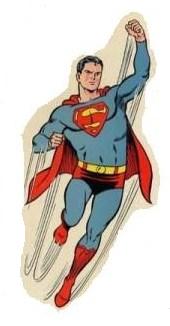
On the Word Gems homepage I spoke of Kierkegaard's "knight of faith." Those identified with such make a home among the people, as a friend and neighbor, so as to be available to those willing to be aided. This is the unpretentious, unaffected, unambitious mind of God, on display and in action.
See the “afterlife #31 main-page” and the "Summerland 1.minute” writings for testimonies from and about these self-effacing servants who live as “ordinary” citizens in Summerland; in residence, in some cases, for thousands of years, with no egoic craving to “move up the ladder to the seventh heaven.” Also see this article, from the missionary work of Franchezzo, on the “super-powers” of the advanced Guides.

We might fantasize ourselves, someday, in the next world, assuming the role of a super-hero; however, living as Clark Kent might be the more advanced modus vivendi.
Our materialistic society values a spirit of competition, someone who can “win” and be “number one.” Nothing wrong with winning and, if appropriate, being number one, but, if that’s all you have, then, as Art Mokarow used to say to us ministerial students, “there’s something wrong with you.”
We extol Superman, and rightly so, for all of his man-of-action virtues, but, let’s think about it, Clark, in his own way, was a true man of strength. He knew himself, on the deep inside, well enough, such that he didn’t have to prove himself as the macho-man at every turn. He allowed others to think that he was overly "meek and mild-mannered" if it served a greater good. This non-flashiness would have been even tuffer for Clark as Superboy, not being able to play sports and impress the girls.
We are reminded of Eckhart Tolle’s excellent discourse:
what looks like weakness is the only true strength
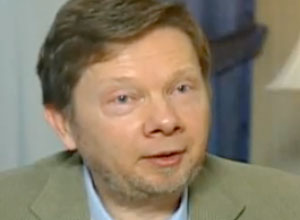
"Instead of trying to be the mountain, teaches the ancient Tao Te Ching, 'Be the valley of the universe.' In this way you are restored to wholeness and so 'All things will come to you'."
can you be content quietly living as a 'nobody', true to yourself, until your own burgeoning competence unavoidably elevates you, whether you like it or not

READ MORE of Eckhart's insightful discussion on the "evil" page.
|
|
Editor's last word:
While Stead's public life mirrored the charitable efforts of Elizabeth Fry, unlike her, however, upon transition he landed in a psychological-spiritual place of less than ideal circumstance. It would profit us to ask, and explore, the question, why?
We spoke of charitable works on “the 500” main-page. Service work can be an indicator of spirituality but, by itself, is insufficient to effect greater maturity. There are many ego-propping reasons why people offer good works, not all of them selfless.
Elizabeth got it right, but the visitors to the "blue island" -- though presently feeling jaunty about their "advancement" and counting themselves as teachers -- have some overdue homework to hand in.
the troubled '500' focus on externalities, on moving higher to some geographically remote world; the better-minded, however, speak of 'going within', to access the inner life
This is a good way to distinguish the two groups. On the "true self" page, see dozens of statements by the psychologically healthy concerning "going within." But the other blue-island group knows nothing of, or pays mere lip-service to, this God-within orientation; as such, it's the root cause of their insanity.
Listen to them carefully: a spirit of "I am better than you" infects all they say.
|
|
Editor’s note: Arrogant, materialistic, wanna-be teachers are a big problem on the lower levels of Summerland. The better teachers speak out about this.
Several years after presenting the above, I wrote an extensive article detailing this issue. You are invited to review it here.
|
|



















